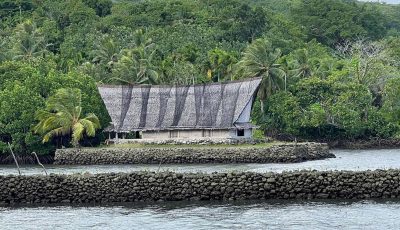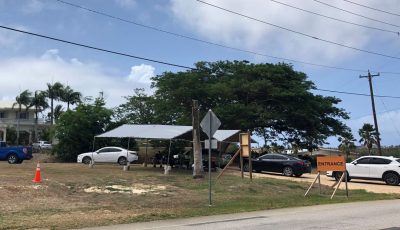Pacific organic growers: Strengthening traditional ways and supporting dev’t

In partnership with the International Federation of Organic Agriculture Movements, the side event, “Organic Islands: role and potential for organic agriculture in sustainable development,” is registered on the SIDS Partnership platform, illustrating the role of organics in economic development, food security and resilience to climate change. Organically certified ginger, vanilla, virgin coconut oil, coffee, cocoa, fruit juice, dried fruit, noni products and high-value cosmetic oils from seven Pacific Island countries were on display at the SIDS Village, giving delegates an opportunity to see the potential of the sector first-hand. (Contributed Photo)
The other side of these regionwide challenges is the trend to lower production of local food and high consumption of imported refined foods, which is seriously affecting people’s health.
The Pacific Organic and Ethical Trade Community, or POETCom as it is known, was originally established by the Secretariat of the Pacific Community as a technical committee. POETCom has now evolved to become an inclusive membership-based umbrella organization and the region’s peak body for promoting organic and ethical trade. SPC hosts the POETCom Secretariat at its Suva offices.
“POETCom arose from the belief that our traditional organic farming practices—when strengthened, coordinated, and shared—can meet the changing needs of our region and people,” said Karen Mapusua, POETCom coordinator. “Our members, largely farmer groups, are working hard to achieve our vision: ‘Pacific organics and ethical trade—the key contributor to sustaining our cultures and communities, improving farmer livelihoods, people’s health and the environment in the Pacific.’”
The Third International Conference on Small Island Developing States in Samoa last week, Sept. 1-4, provided an opportunity for SPC and POETCom to highlight the achievements and impact of the Pacific organic movement on sustainable development in the region.
POETCom’s work in partnership with SPC was featured in several side events at the conference, including one led by the International Fund for Agricultural Development, “More than cocoa and coconuts,” which presented a case study of Cicia Island in Fiji. The people of Cicia have achieved organic certification for their products and their island has been declared fully organic. The project, which ends in December 2014, has been funded by IFAD. (SPC)



























